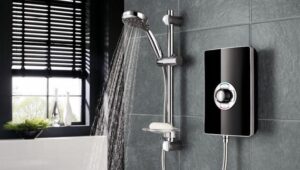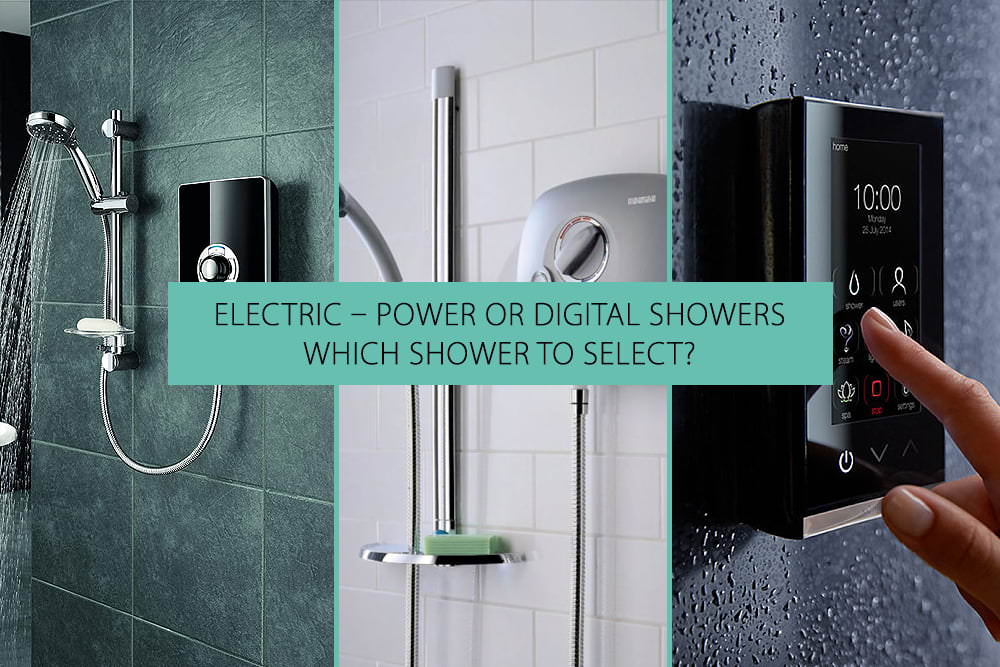In today’s fast-paced world, convenience and efficiency are essential in every part of our daily lives, including our bathrooms. Among the many innovations in bathroom technology, electric showers stand out as an incredibly practical and energy-efficient choice for those looking to enhance their showering experience. With an increasing number of households seeking solutions that blend modern technology with everyday functionality, electric showers have risen in popularity due to their ability to provide instant hot water, their ease of use, and their energy-saving features. This article explores everything you need to know about electric showers, including how they work, their benefits, and factors to consider before installation.
What Is an Electric Shower?
An electric shower is a type of shower that heats water instantly using electricity. Unlike traditional showers that rely on a hot water tank to store heated water, electric showers heat the water directly as it passes through the showerhead. This means that electric showers can deliver a continuous supply of hot water, no matter how long you want to spend in the shower.
Electric showers are equipped with an in-built heating element, which is activated when the water flows through the unit. The heating element quickly warms the water, and the temperature is controlled through an easy-to-use dial or digital interface. The unit is connected directly to the cold water supply, eliminating the need for a separate hot water tank, and making them especially suitable for homes without a conventional boiler system or for those looking to conserve energy.
How Do Electric Showers Work?
Electric showers work by passing water over an electric heating element inside the unit. When you turn on the shower, cold water flows from the mains water supply into the electric shower unit. As the water flows over the heating element, it is heated to your desired temperature, which can be adjusted using the temperature controls.
One of the key features of an electric shower is its ability to provide a constant flow of hot water without the need for a water storage tank. This is because the unit heats the water on-demand as you need it. There are three main settings that you can typically adjust: the flow rate (how much water comes out), the temperature (how hot the water is), and the power (which controls the amount of electricity used to heat the water).

Benefits of Electric Showers
1. Instant Hot Water
One of the most significant advantages of an electric shower is the ability to provide instant hot water. With an electric shower, you don’t have to wait for a water heater or boiler to warm up. As soon as you turn on the shower, the water is heated as it flows through the unit, allowing for a quick and efficient showering experience.
2. Energy Efficiency
Electric showers are energy-efficient because they only heat the water that you need. Unlike traditional hot water systems that heat a large volume of water in advance and may waste energy when unused water cools down, electric showers heat water as you use it. This on-demand heating process ensures that energy is not wasted, helping to reduce your electricity bills.
3. No Need for a Hot Water Tank
With no need for a separate hot water storage tank, electric showers are ideal for homes with limited space or those looking to reduce clutter. They are particularly beneficial for apartments or smaller homes that don’t have room for bulky water heating systems. Additionally, electric showers are perfect for homes without a central heating system or combi boiler, as they function independently of these systems.
4. Temperature Control
Electric showers offer precise temperature control, allowing you to adjust the water temperature to your liking. Whether you prefer a hot, steamy shower or a more moderate temperature, electric showers give you full control over the heat settings. Many modern electric showers even come with digital displays that provide accurate temperature readings, making it easier to achieve your ideal showering experience.
5. Low Maintenance
Electric showers are typically low-maintenance appliances. As there is no need for a hot water tank or a complex boiler system, the chances of developing problems related to water storage or heating efficiency are minimal. Electric showers are also less prone to limescale buildup, which can be an issue in areas with hard water. Regular cleaning of the showerhead and descaling the unit every few months is usually all that’s required to keep the shower in good working condition.
Considerations Before Installing an Electric Shower
Before installing an electric shower in your home, there are a few important considerations to keep in mind:
1. Electrical Requirements
Electric showers require a dedicated electrical supply, which may require an upgrade to your electrical system. It is essential to hire a qualified electrician to ensure that the installation meets local safety standards. The electric shower’s power rating (usually between 7.5kW and 10.5kW) will determine the size of the electrical cable and the type of circuit needed. The electrician will need to check that your home’s electrical system can handle the load.
2. Water Pressure
The water pressure in your home plays a crucial role in the performance of an electric shower. Electric showers work best with higher water pressure, as lower pressure may lead to a weak water flow or insufficient heating. You may want to check the pressure of your cold water supply before installing an electric shower, as some units may not work efficiently with low pressure.
3. Showerhead and Flow Rate
Electric showers typically offer a range of showerhead designs and flow rates, with some models providing a more powerful water flow than others. If you prefer a strong, invigorating shower, look for an electric shower with a higher flow rate (measured in liters per minute). However, note that a higher flow rate may require more power to maintain the temperature.
4. Location of Installation
The location where you install your electric shower is also important. Make sure the shower unit is installed within reach of the cold water supply and an electrical connection. This may require some remodeling or adjustments to existing plumbing and wiring. It’s important to hire a professional to ensure that installation is done correctly and safely.
Conclusion
Electric showers are an excellent choice for homeowners seeking a reliable, efficient, and space-saving solution for their bathroom. Offering the convenience of instant hot water and the benefit of energy savings, electric showers are a perfect option for modern households. However, it’s important to ensure that your home’s electrical and water systems are compatible with the shower, and that installation is done professionally. With the right electric shower, you can enjoy a comfortable and efficient shower experience every day!
